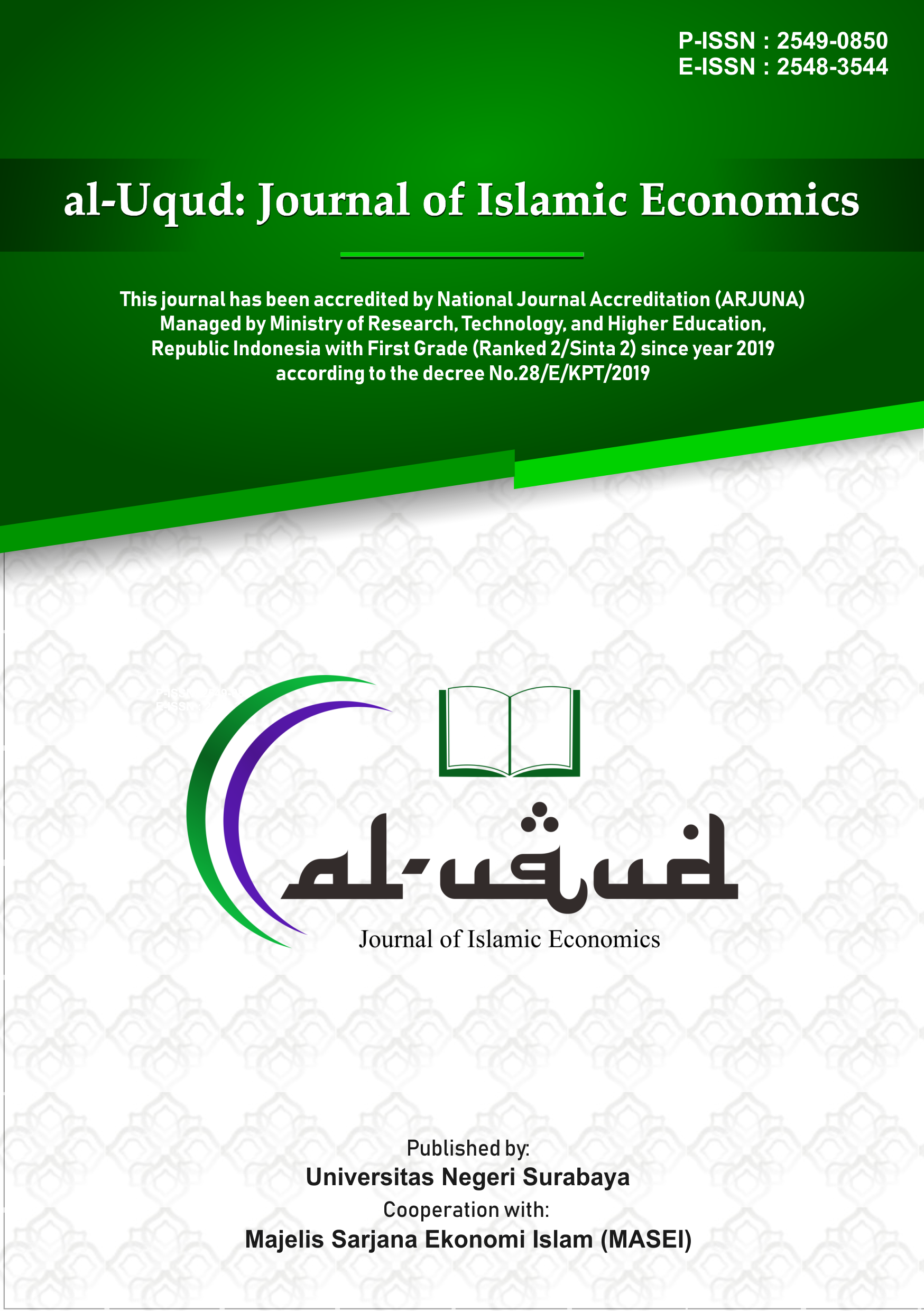A critical overview of Ali Shariati's comment on the Islamic Economy
DOI:
https://doi.org/10.26740/aluqud.v6n1.p41-65Keywords:
Islamic economy, Islamic economic system, Ali Shariati, SocialismAbstract
Islam introduces a system that encompasses and concerns all areas of human life, and the economic structure, which occupies an important place and significance in this human life, is a crucial part of this system. Based on their considerations of the Qur'an and hadith sources, Islamic scholars have classified the five essentials to be protected in Islam: religion, life, mind, generation, and property (six with the addition of "purity" in some works). As seen from this classification, the property is mentioned with life. Also, as described in the proverb "property is the chip of life", the property is a sincere piece as an essential part of life, and a human being even gives up on their life for it. Iranian sociologist and author Ali Shariati has written very important works in sociology. In his works, he touched partly on the issue of the Islamic economy, and his opinions relating to this were compiled under various names and published in the form of the book. Although Shariati often emphasized the right and acceptable principles in their views on the economy in general and especially the Islamic economy, to impose the socio-economic structure in his mind, he presented the views opposite with Islam under the name of the Islamic economic system. In his opinion, the effects of the Shia thought were deeply noticed, and he did not see any harm in presenting his false deductions under the name of Islam. According to him, within the framework of Shia thought, socialism represents the real Islamic economy. His views sometimes go to extremes so much that he can put the entire fiqh system and fiqh scholars under suspicion. In this study, the thoughts put forward by Ali Shariati about the Islamic economy system are critically evaluated and the points that are separate from the whole Islamic economy system are tried to be revealed. The main purpose here is to provide an understanding of the real Islamic economic system, inform the relevant people about the issue, and correct the mistakes by revealing the wrong views.
References
Chapra, M. U. (1992). Islam and the economic challenge (Issue 17). International Institute of Islamic Thought (IIIT).
Chehabi, H. E. (1990). Iranian Politics and Religious Modernism: The Liberation Movement of Iran Under the Shah and Khomeini. Tauris. https://books.google.com.tr/books?id=JJEIQbUnGyYC
Rahnema, A. (2000). An Islamic utopian: A political biography of Ali Shariati. IB Tauris.
Shariati, A. (1992). E?im Ali ?eriati: Bir Ya?am Portresi (M. N. Sair, Trans.). Fecr yay?nlar?.
Shariati, A. (2014). Ommat va emamat. Islamic Community and Imamate,[Islamic Community and Imamate], Tehran: Sepidebavaran Publishing.
Downloads
Published
How to Cite
Issue
Section
License
Copyright (c) 2022 The author(s)

This work is licensed under a Creative Commons Attribution 4.0 International License.
CC BY 4.0 Abstract views: 425
,
Abstract views: 425
, PDF Downloads: 500
PDF Downloads: 500








